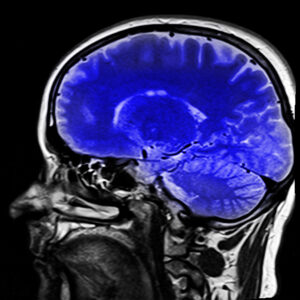Welcome to NeuroSci R&D!
We’re here to provide clear, reliable explanations about the medical conditions we know best. Click any of the links below to explore topics in depth. Have a question or a comment? We’d love to hear from you at Comment@NeuroSciRandD.com. (Last updated: April 23, 2025.)
Topics We Cover:

• schizophrenia
• Alzheimer’s disease
• autism
• PTSD
• Parkinson’s disease
• bipolar disorder
• epilepsy
• stroke
• depression
• panic disorder
• multiple sclerosis
• migraine
• ADHD
New or Updated pages as of April 23, 2025:
• Doctors’ Poems (FREE PAGE)
• Maybe Schizophrenia Won’t Disappear Anytime Soon (FREE PAGE)
• British Columbia’s Mental Health Care – Free Page (FREE PAGE)
• Predicting Your Risk for Dementia (subscriber-only page)
• Early Psychosis Intervention To Prevent Schizophrenia (subscriber-only page)
• When Even Clozapine Doesn’t Work in Schizophrenia (subscriber-only page)
Helping Through Good Information
Since 2015, we’ve been offering trustworthy medical insights. People often email us with questions about their conditions and treatments. We respond—sometimes confirming what their doctor said, sometimes providing a different perspective. It’s like a personal second opinion, free of charge.
The Good News About Brain Health
- Research continues to delay and potentially prevent Alzheimer’s.
- New depression treatments mean fewer cases are resistant to therapy.
- Advances in multiple sclerosis treatments are improving outcomes.
- Stroke awareness and rapid response are reducing long-term disabilities.
“Bad Behavior, Bad Brain” — What Does That Mean?
Neurologists have a saying: “Bad behavior, bad brain.” It’s not a strict rule, but it’s a useful starting point. Often, when people act out in harmful ways, an underlying brain issue is at play. On the flip side, good behavior doesn’t always mean a healthy brain—plenty of people with well-functioning brains still make terrible choices.

What Is Neuroscience?
If you’ve heard of Xanax, Prozac, Adderall, or Ambien, you’re already familiar with neuroscience. These medications target the brain to treat conditions like anxiety, depression, and ADHD. Neuroscience is all about how the brain works — when it’s healthy, when it’s sick, and how to treat it.
Brain Active Beverages and Smokes
Coffee, tea, wine, whiskey, beer—everyday choices that affect the brain. These drinks contain psychoactive compounds like caffeine (coffee), theophylline (tea), and ethanol (alcohol). Even cigarettes and marijuana contain brain-active chemicals (nicotine and THC). These substances fit into brain receptors like puzzle pieces, triggering effects that make us feel alert, relaxed, or euphoric.
Sign Up For Our Free Monthly Newsletter
Get updates on new medical research and treatments. Sign up using the dialog box at the bottom of your screen.
Support Our Work — Become a Subscriber
Most of our content is free, but some pages are subscriber-only. Many people subscribe just to support us. Membership is only 99¢ per month or $1.99 for three months, and you can cancel anytime.
Understanding Our Subscriber Pages and Paywall

We’ve noticed that many of our readers misunderstand why some of our pages are behind a paywall. We’re not selling medical information—there’s plenty of that available online for free. In fact, the medical content behind our paywall is no different from what you can find elsewhere. The paywall exists to create a community of supporters who value our mission. What subscribers get is access to our expert opinions—insights from the Neuroscience Research & Development Consultancy. If you find our perspectives valuable, consider joining our community.

Fascinating Stories and Discussions
Don’t miss true stories like the Lady with Worms Crawling Out of Her Skin.
A Closer Look at Brain-Based Conditions

Schizophrenia
What it is, what causes it, early warning signs, how it progresses, and how it’s treated. We also explain the lesser-known “negative symptoms” and differences between men and women. In addition, there’s a free page on treatments for schizophrenia.
Alzheimer’s
A medical mystery with known early warning signs. Learn how symptoms start decades before diagnosis and how science is working on ways to reduce the risk
And here’s a link to a heartwarming but sad poem about dementia, “My Own Blood”. We think you’ll like it. It’s one of those that make you smile and cry at the same time.
Bipolar Disorder
Once called manic depression, this condition proves that feeling “too good” can be a problem. Fortunately, it’s highly treatable with effective, safe medications.
Panic Disorder
The first panic attack can feel life-threatening, but panic disorder is treatable. Medication, therapy, and education can bring relief.

Depression
Clinical depression is different from occasional sadness. Fortunately, new treatments make recovery easier than ever before.
ADHD
A childhood disorder that often persists into adulthood. It varies in severity over time but can be managed successfully with proper treatment.
Epilepsy
A common seizure disorder that usually responds well to treatment, especially under the care of an epilepsy specialist.
Parkinson’s Disease
Thanks to ongoing research and generous funding, new and better treatments continue to emerge.

Migraine
Recent breakthroughs have revolutionized treatment, offering better relief and prevention than ever before.
Ask Us a Question
We respond to emails! Send your questions to Comment@NeuroSciRandD.com
Almost Telepsychiatry
We’re not quite offering telepsychiatry—but we’re close
Comfort Food and Brain Health
Comfort is essential. Try our Old World Cabbage Roll recipe.
Why Our Name?
Many people ask why we’re called the Neuroscience Research & Development Consultancy. The short answer? History. The company has evolved, but frequent name changes have legal and financial downsides. Call us whatever you like—we just love hearing from you!
Helpful links:
ClinicalTrials.gov, National Institutes of Health, US Library of Medicine
NINDS, the National Institute of Neurological Disorders and Stroke
NIH, the National Institute of Mental Health
Centers for Disease Control and Prevention (the CDC)
A Warning About Phishing Emails
Some readers have reported receiving scam emails that look like they’re from us, asking for login details or payment info. We NEVER send such emails. If you get one, do not reply. Instead, send a separate email to Comment@NeuroSciRandD.com to verify any concerns. Stay safe!.
